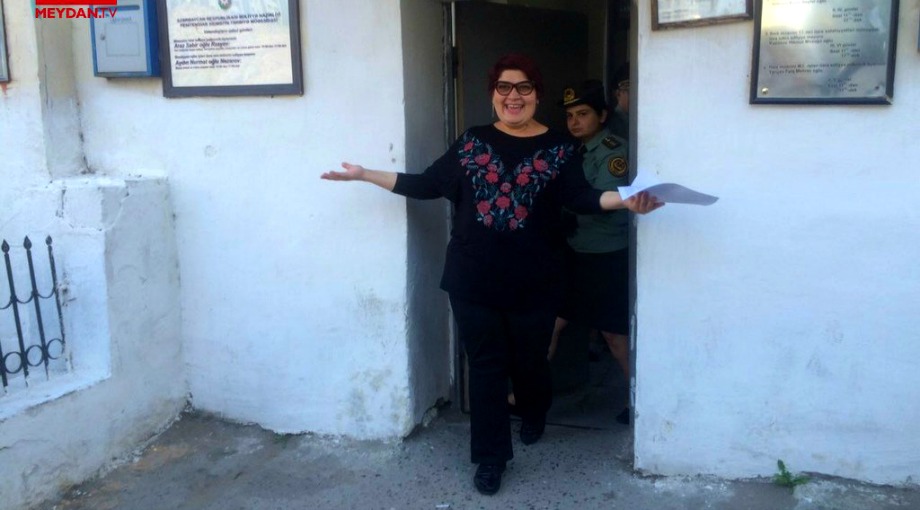Investigative reporter and ICIJ member Khadija Ismayilova has been released from an Azerbaijani prison after spending a year and a half behind bars.
Following a heavily criticized politically-motivated trial and conviction in 2015, Azerbaijan’s supreme court on Wednesday reduced Ismayilova’s sentence from seven and a half years prison to a suspended term of three and a half years, and ordered her release.
ICIJ, international journalists and press freedom groups had all condemned Ismayilova’s arrest and trial on trumped up charges of tax evasion and embezzlement – issues that Ismayilova herself had investigated in relation to the family of Azerbaijan’s president Ilham Aliyev.
“Rather than prove any of the charges against Khadija, this trial has only served to further prove the systemic corruption Khadija herself has spent years investigating,” ICIJ director Gerard Ryle said at the time of her conviction.
The news of her release on Wednesday comes two days before Ismayilova’s 40th birthday, and has been welcomed by press freedom advocates and her supporters.
The Committee to Protect Journalists, which had earlier derided the trial as a “farce” and criticized Azerbaijan’s poor record on press freedom, expressed relief at Ismayilova’s release.
“Today’s ruling ordering Khadija Ismayilova freed is cause for celebration, but does not erase the rank injustice of her imprisonment for a year and a half on retaliatory charges,” CPJ Europe and Central Asia Program Coordinator Nina Ognianova said. “We call on Azerbaijani authorities to remove the conditions on her freedom, and to release all journalists imprisoned for their work immediately.”
Ismayilova maintained her innocence and remained defiant throughout her imprisonment, and issued a number of strong statements from detention. She was honored with a number of international prizes during her time in prison, including the UNESCO/Guillermo Cano World Press Freedom Prize in May, and the PEN American Center’s Barbara Goldsmith Freedom to Write Award in 2015.
Human rights lawyer Amal Clooney had taken up Ismayilova’s cause and had submitted a case to the European Court of Human Rights in March.
“I found her to be this really courageous, inspirational woman, a young woman, 39-years-old, working in a country where she knew very well the consequences of being a reporter,” Clooney said of Ismayilova in a BBC interview. “The idea that a government, Azerbaijan, that’s a member of the Council of Europe, that they could actually so blatantly put a reporter behind bars because they didn’t want her to be able to tell the truth made me really angry.”
The Human Rights House Network said Ismayilova’s release from prison was “great news” but warned it was “not a sign of an improving climate in the country for independent journalists.”
“The authorities must take steps to ensure that critical press is free, and investigative journalism is not punished, as elements to truly improve the space for freedom of expression in Azerbaijan,” said regional manager Ane Tusvik Bonde.
Press freedom in Azerbaijan was rated “very bad” and ranked 163 out of 180 countries in the Reporters Without Borders World Press Freedom Index in 2016.
Read more about the impact from ICIJ’s investigations, and find out how you can support ICIJ’s work
Find out first! Receive ICIJ’s investigations by email
